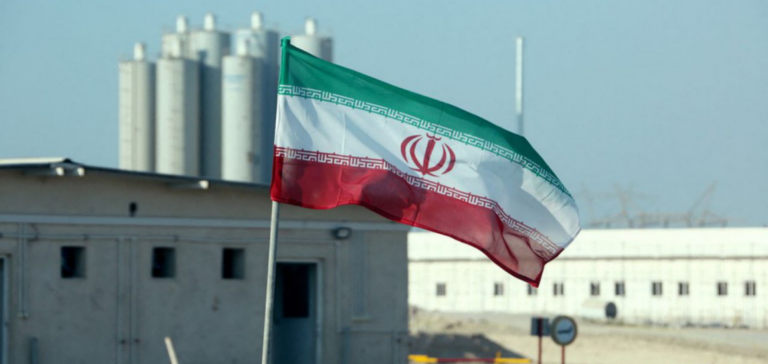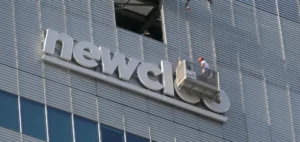Iran has begun producing 60% enriched uranium at its Fordo plant, in a new departure from its commitments to the major powers, in response to a critical resolution adopted by the International Atomic Energy Agency (IAEA).
This 60% threshold announced on Tuesday far exceeds the 3.67% threshold set by the 2015 agreement between Tehran and the West to prevent Iran from acquiring atomic weapons. Uranium enriched to 90% is needed to produce an atomic bomb.
Under the terms of the agreement, Iran agreed to freeze its enrichment activities at Fordo, an underground plant located 180 kilometers south of Tehran.
However, the site had been re-commissioned in 2019 and recently modified to achieve greater efficiency.
“The production of 60% enriched uranium at Fordo has started since Monday,” the head of the Atomic Energy Organization of Iran (AEOI), Mohammad Eslami, announced on Tuesday, as quoted by the Isna news agency.
“We have said that political pressure does not change anything and that the adoption of a resolution (at the IAEA) will elicit a serious response” from Iran, he added.
The 2015 pact, known by its acronym JCPOA, offers Iran relief from international sanctions in exchange for guarantees that Tehran will not acquire an atomic weapon, a goal the Islamic Republic has always denied pursuing.
But following the U.S. withdrawal from the JCPOA in 2018 under Donald Trump and the reinstatement of U.S. sanctions that stifle its economy, Tehran has been steadily moving away from its obligations.
As the main measure of this disengagement, Tehran began the process of producing 20% enriched uranium in the Fordo plant in January 2021.
Then in April 2021, Iran announced that it had begun to produce uranium enriched to 60% at the Natanz site (center), approaching the 90% threshold.
On Sunday, Iran announced that it had taken retaliatory measures against the IAEA following a resolution criticizing Tehran’s lack of cooperation, presented by the United States and three European countries (United Kingdom, France and Germany).
This resolution voted last Thursday by the Board of Governors of the UN agency is the second this year, after the one in June. Russia and China voted against.
The reason for the two resolutions is the same: the lack of “technically credible” answers from Tehran concerning traces of enriched uranium found at three undeclared sites.
Second action
This issue is one of the main points on which the negotiations started in April 2021 in Vienna to revive the 2015 agreement are stalling.
After positive signals in August, talks have now stalled.
Tehran is calling for a closure of the IAEA investigation in order to reach a compromise with its direct interlocutors (Germany, France, Great Britain, China and Russia), while the United States is indirectly involved.
At the end of October, the head of US diplomacy, Antony Blinken, said he had little hope of a rapid outcome to the talks.
Iran had announced on Sunday that the retaliatory measures had been implemented the same day “in the presence of IAEA inspectors” at the sites of Natanz and Fordo.
“In a second action in response to the resolution, Iran injected gas into two more IR-2m and IR-4 cascades (of centrifuges) at the Natanz site,” Isna news agency reported Tuesday.
In a report accessed by AFP, the IAEA reports accumulated stocks of enriched uranium of 3,673.7 kilograms as of October 22, a total 267.2 kilograms lower compared to August but well above the 202.8-kilogram cap to which the Islamic Republic committed in 2015.
Above all, Iran is still enriching at high levels, far from the limit set at 3.67%: it has 386.4 kg at 20% (compared to 331.9 kg previously) and 62.3 kg at 60% (compared to 55.6 kg).
This increase in power is also taking place at a time when the IAEA is facing a clear restriction of its inspections.
A resumption of dialogue seems all the more difficult as Iran has been shaken by popular protest since the death on September 16 of a 22-year-old woman, Mahsa Amini, who died after her arrest by the vice police.





















